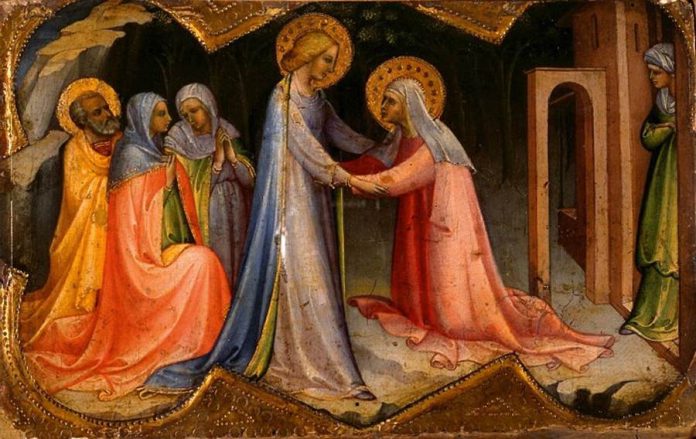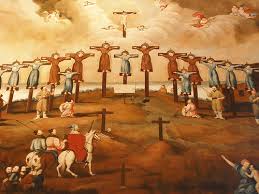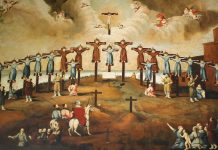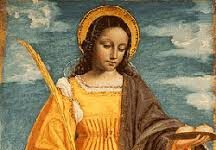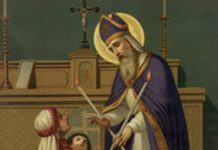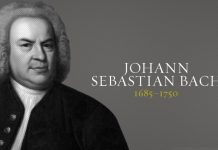Blessed are you who believed that what was spoken to you by the Lord would be fulfilled (Lk. 1:45).
On this the fourth and last Sunday of Advent, the Sacred Liturgy invites us to be one with the Blessed Virgin Mary, in whom at last the fullness of time is reached, and a new order of providence is begun, when the Son of God takes from her a human nature in order to free the human family from sin through the mysteries of his earthly life (Lumen Gentium, 55). As we prepare to celebrate the Birth of the Messiah, we reflect on the one chosen by God to be so intimately united with Him in the work of salvation. When Christ came into the world, he said, ‘Sacrifice and offering you did not desire, but a body you prepared for me’ (Heb. 10:5). This body was born of the blessed womb of the Immaculate Virgin Mary, the chosen Daughter of Israel, and the Mother of the Messiah.
The Gospel of the Mass is commonly referred to as the Gospel of the Visitation for it relates our Lady’s visit to her cousin Elizabeth, the mother of John the Baptist. The reading of this Gospel text during this time of proximate preparation for the Solemnity of Christmas is significant for from it we learn how our Lady responded to the Incarnation of the Son of God. St. Luke relates that Mary set out and traveled to the hill country in haste (Lk. 1:39). Our Lady’s haste does not necessarily refer to the swiftness of the journey but rather to the interior disposition that causes one to act with fervour and zeal. The Gospel of the Visitation clearly teaches us that the Word of God is not simply to be heard; it must be acted on. Mary is not content to receive God’s Word in the intimacy of her inner life. She acts on this Word. By this dynamic Mary becomes a visible word herself. Full of God’s grace, she reflects the Word made Flesh who is full of grace and truth (Jn. 1:14); and just as grace upon grace overflows to us (Jn. 1:16) through the Son, so does Mary become a vessel of God’s grace. For this reason Mary is the model of spiritual commitment with whom the Church celebrates and lives the divine mysteries (Pope Paul VI, Marialis Cultus, #16).
Our Lady is both the Mother and the Model of the Church and no less our Teacher in the spiritual life that all of us should endeavour to deepen and nurture. During Advent the Roman Liturgy celebrates the plan of salvation by which God restored humanity to Himself. It is our privilege each year to hear the ancient prophecies proclaimed and our sacred history once again retold: the plan of salvation by which the merciful God called the patriarchs, united them to Himself in a covenant of love, established the Law through Moses, raised up the prophets, and chose David as the one from whose line the Saviour of the world was to be born. In foretelling the coming of Christ, the books of the Old Testament gradually bring into clearer light the figure of a woman, the Mother of the Redeemer (Lumen Gentium, 55). In Our Lady both the promises of the Lord and humanity’s longing for salvation are fulfilled.
As the model of spiritual commitment with whom the Church celebrates and lives the divine mysteries, in both the Annunciation and the Visitation our Lady teaches us how to receive God’s Word with faith and how to respond to it in charity. When we have received God’s Word both in the proclamation of the Gospel and in the Eucharistic Sacrifice with reverence, purity and devotion then we also go forth in haste; that is to say, with fervor and zeal so that we might share with others what God has done for us. The outreach to those in need especially at this time of the year exemplifies this going forth in haste. It may be said that the Church is always engaged in this Mystery of the Visitation as we, the sons and daughters of the Church bring Christ to others. To fail to do so, whether in word or in deed, frustrates God’s plan of salvation as this plan unfolds in our own day. Evangelization is necessarily the foundation for the Church’s charitable outreach. Without faith, charity is reduced to mere philanthropy.
In the unfolding of the Mystery of the Incarnation the role of Our Lady as Mother of the Saviour cannot be overstated. The Saviour’s task however, was also revealed to St. Joseph, the virginal, earthly father of Our Lord. To him the Angel said in a dream, Mary will bear a son, and you shall call his name Jesus, for he will save his people from their sins (Mt. 1:21). So we learn from Our Lady who longed for [the Messiah] with love beyond all telling (Preface II of Advent, The Roman Missal) likewise to long for the gift of salvation. Blessed are you who believed that what was spoken to you by the Lord would be fulfilled (Lk. 1:45). We also share in this blessing for we too have believed in these promises and once again this year have read them and pondered them in our hearts. The true faith is the greatest gift and the greatest good that we can ever receive. As we endeavour to mature in our faith and become fully trained disciples (Lk. 6:40), we recognise that like Our Lady and St. Joseph, we must become servants of the Mystery of Christ. If we do this earnestly and generously, we will find ourselves engaged in a spiritual fatherhood or motherhood in imitation of St. Joseph and Our Lady, and our hearts especially in prayer, will embrace the whole world; a world is in great crisis. This crisis is fundamentally a crisis of identity and consequently, of confusion of roles. We can best relieve this crisis by endeavouring to be faithful witnesses to the truth, faith and charity of Christ.
May the humility and docility of Our Lady and St. Joseph help us to benefit from the coming celebration of the Feast of Christmas. With Mary the Mother of Our Saviour may we live and celebrate the Mystery of Christmas and in haste, that is to say, with fervour, zeal and charity, may we share with others the gift and joy of salvation.

